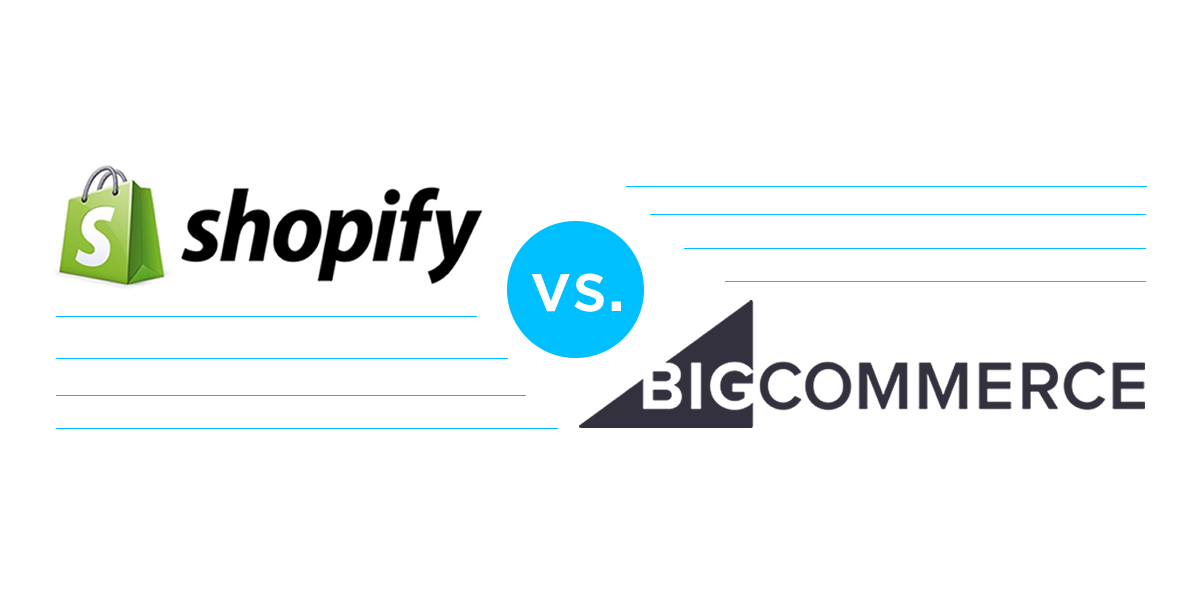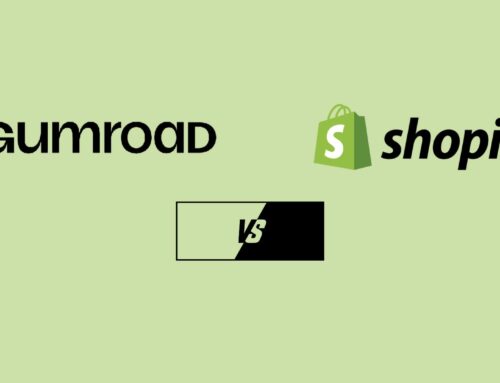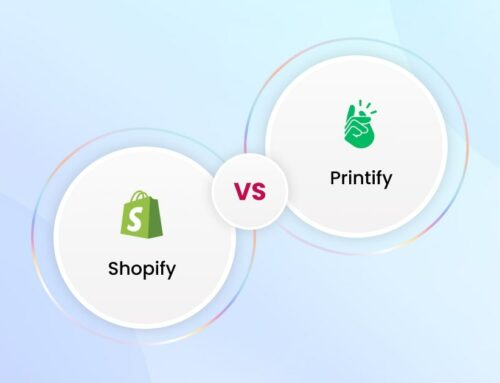If you have a potential online business idea, do not hesitate to make it real. Opening an eCommerce website now is easier than ever thanks to many useful platforms like Shopify, BigCommerce, Magento, WooCommerce, etc. Today, we will discuss the difference of Shopify vs BigCommerce.
Is BigCommerce better than Shopify? Either platform has both pros and cons, making it suitable for different business purposes and merchants. For those who might never use an ecommerce platform before, we have come up with a complete comparison series among the top choices on the market.
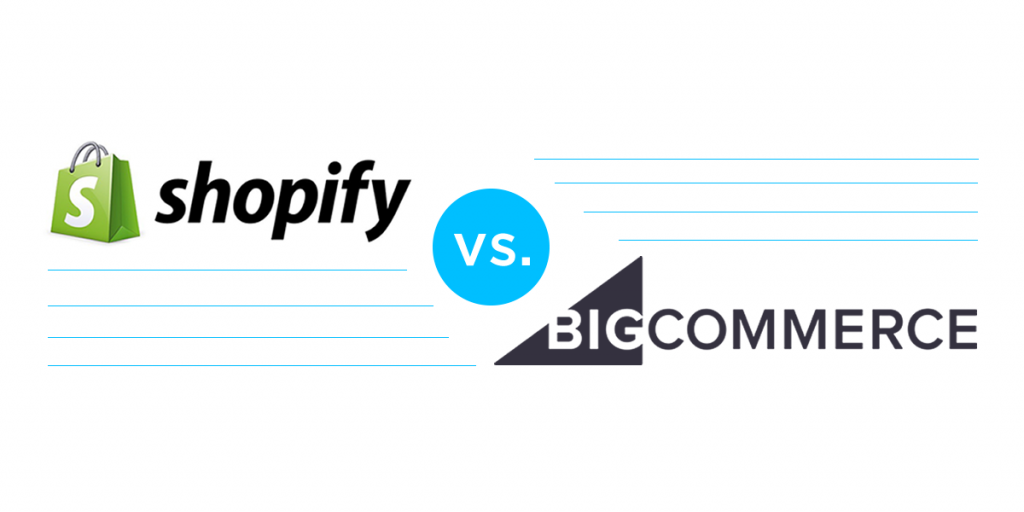
Contents
- 1 Shopify vs BigCommerce Comparison Table
- 2 History of Shopify vs BigCommerce
- 3 BigCommerce vs Shopify pricing plan
- 4 Shopify vs BigCommerce Differences
- 4.1 Hosting and cloud-based systems
- 4.2 Shopify vs BigCommerce Theme library
- 4.3 User-friendly web builder
- 4.4 Unlimited product management
- 4.5 Shopify vs BigCommerce SEO
- 4.6 Optimized loading speed
- 4.7 Mobile-friendly structure
- 4.8 Sales channels & Shopify Point of Sale (POS)
- 4.9 Security issues
- 4.10 Shopify vs BigCommerce Shipping & payment
- 4.11 Multi-languages and multi-currencies
- 4.12 Sales & Marketing features
- 4.13 Customer Support
- 5 Which is better Shopify or BigCommerce?
Shopify vs BigCommerce Comparison Table
| Criteria | Shopify | BigCommerce |
| Main users | Small to medium businesses who are not tech-savvy. | Large and fast-growing businesses with cloud-based integrations. |
| Solution packages | 4 packages:
|
4 packages:
|
| Pricing | $29 – $399/mo with credit card rates | $29.95 – $299.95/mo with credit card rates. Sales threshold is included. |
| Hosting and cloud-based system | Fully-hosted | Multi-layered hosting |
| Theme library | 9 unique Free themes and nearly 100+ paid themes | 12 Free themes but with little differences |
| Web builder | Easy interface, but with old-styled WYSIWYG | Drag-and-drop page builder which is harder to use |
| Product management | Different product types with 3 options per products | Different product types with up to 6 options |
| SEO optimization | Basic SEO features | More advanced SEO features |
| Loading speed | Very good | Good |
| Mobile friendly | Very good | Good |
| Sales channels | More sales channels integrated | Basic sales channels integrated |
| Security | Good | Very good |
| Shipping & Payment | Very good, especially for dropshipping | Various shipping options and secure payment options |
| Multi-languages | Limited but can be expanded with apps | Limited |
| Sales & Marketing | Good and can be expanded with apps | Very good but hard to use |
| Customer Support | Very good | Very good |
| Good for | Small businesses | Large and fast-growing businesses |
History of Shopify vs BigCommerce
Shopify was developed by an online merchant

Shopify started as the idea of three young men: Tobias Lütke, Scott Lake, and Daniel Weinand when they tried to open a snowboarding equipment store. It is called Snowdevil. Back then, they did not intend to create an ecommerce platform but simply were not satisfied with existing tools on the market.
It was only until the shopping cart system of Shopify was launched for the public in 2007 that the company received the recognition of investments and ecommerce merchants. Since then, Shopify keeps introducing more and more solutions and plans to power hundreds of thousands of online businesses worldwide.
On the plus side, Shopify learns many things from other platforms, like Magento or WooCommerce, and come with innovative solutions to overcome many disadvantages – for instance, making it easy to use for even non-tech-savvy users.
On the other side, Shopify seems to lack experience in handling complicated demands like those of wholesale businesses. Moreover, there are still limitations in technologies and customizations.
BigCommerce is a bit younger, but a more business expert

Founded in 2009 in Australia, BigCommerce is even younger than Shopify.
The idea behind BigCommerce is to help merchants sell more at every stage of business with no-code, drag-and-drop presentations. Using this platform is sort of like leasing and customizing a storefront in a development model. It means you can fully control merchandising, design, marketing, and other business-wise operations. However, you can leave technical problems like store construction, security, infrastructure, and plumbing for the BigCommerce team. They have a “software as a service” (SaaS) and hosting system.
Although BigCommerce is younger than Shopify, we consider the team as truly business experts. Truth be told, we are loyal readers of BigCommerce blogs when we want to find more information about an online business concept or market statistics and reports.
However, as a SaaS stack player, BigCommerce still has to make a big investment to get all unified solutions within a back-office system like that of Oracle, SAP, or MS Dynamics.
Users of Shopify vs BigCommerce
We have done a quick search on Google Trend and here is what you can see: There are many more people searching for Shopify than BigCommerce. Thus, you can already figure it out that many online merchants used Shopify to build their websites instead of BigCommerce.
It makes sense because Shopify is a more experienced player. Not to mention that it has been so popular since the explosion of dropshipping businesses. Most importantly, this platform is built for all types of merchants: from local mom-and-pop sellers to tech startups, and to global businesses.
Meanwhile, customers of BigCommerce are those large and fast-growing businesses. They often pay extra care for database integration and security. For that reason, instead of storing their data locally, they send it all to the cloud system.
BigCommerce vs Shopify pricing plan

The next comparison is on the pricing of the two platforms. After all, what many of you might desire to know the most is whether you can afford Shopify or BigCommerce. Then, you can decide to move forward.
Head to head, Shopify vs BigCommerce seem to have similar pricing plans. The increase in monthly subscription fees of BigCommerce turns out to be made up by the lower credit card processing fees.
The main difference in their prices, however, is Shopify Plus and BigCommerce Enterprise. The two plans are not listed above because there are no specific prices. Rather than, the charge will be calculated based on the number of transactions. In other words, the bigger your business grows, the more you have to pay for Shopify and BigCommerce. In return, you will get extra functionalities and support.
Read more: Which Shopify plans is the best for you?
Shopify vs BigCommerce Differences
Both Shopify and BigCommerce strive their best to cover as many demands as possible by online merchants and customers. Thus, their basic features are almost the same as you can see above.
Nonetheless, when we get insight into each platform, we can pick up some outstanding features that can help tell Shopify vs BigCommerce apart.
Check out Shopify Features that make it outstanding for online business
Hosting and cloud-based systems
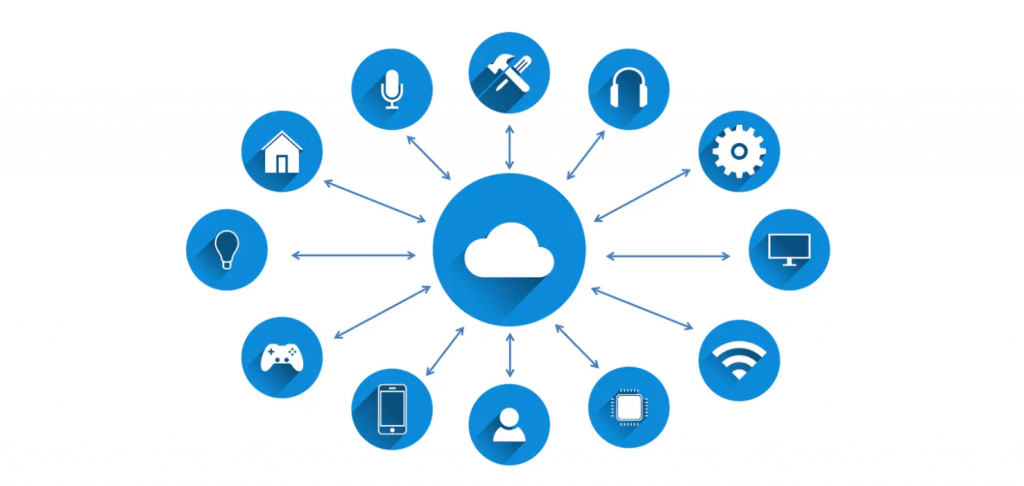
All online stores powered by Shopify or BigCommerce will get unlimited hosting, a list of pre-built themes, customizable options, and secure checkout/payment, etc. because the two platforms are fully-hosted.
Basically, Shopify and BigCommerce have all advantages you can expect from a hosted platform. However, Shopify is well-known for its ease of use and almost daily automatic backup. Meanwhile, BigCommerce focuses on enhancing multi-layered hosting security, plus with DDOS protection.
Shopify vs BigCommerce Theme library
In the first place, many might feel a bit hesitant to know that there are only 9 free templates available when you subscribe to the plan for the first time compared to 12 of BigCommerce. However, we prefer Shopify, considering that the themes look modern and unique. Although BigCommerce has more themes, many of which are not different from each other.
You may concern: Top 15+ best Shopify themes for 2024
User-friendly web builder

You do not have to have designing experiences to build your very first website because Shopify provides beautiful themes at your fingertips. All to do is to pick up a template that fits your products. Then, freely add or remove any blocks from the chosen layout. By no means that Shopify is hard to use, but the interface is a bit old fashioned with a dated WYSIWYG editor. As a result, Shopify UX is similar to many web-based content management systems like WordPress.
BigCommerce, on the other hand, is a bit more cumbersome than Shopify because of many additional customizations. Fortunately, the platform has useful constructions each and every step, so as long as you can pay some attention, you can master all configurations then. Excitingly enough, BigCommerce recently introduced Page Builder which helps build webpages with just drag and drop instead of the old WYSIWYG.
Unlimited product management
One of the top key things to compare between Shopify vs BigCommerce is the ability to create product selections in the fastest and most convenient way.
A good plus of Shopify is that you can add any number of products to your admin whether they are physical, digital download, gift cards, and services. No worries if your products have options because Shopify supports adding 3 sets of options per product. We like that you can import products to the Admin or find products to sell with the Oberlo app. This is extremely useful when you use Shopify for dropshipping. Moreover, it is possible to choose and edit products in bulk to fasten the product management process.
BigCommerce, again, takes more time to create a product or collection. However, you have more options to manage your products. For instance, there are up to 250 options per item. Moreover, you can add valuable content such as wishlist, search suggestions, product comparison, product reviews, bulk discount, etc. without using third-party apps.
Generally, Shopify is the winner in terms of speedy and convenient product management. Nonetheless, BigCommerce is more preferred by those selling complicated products.
Shopify vs BigCommerce SEO
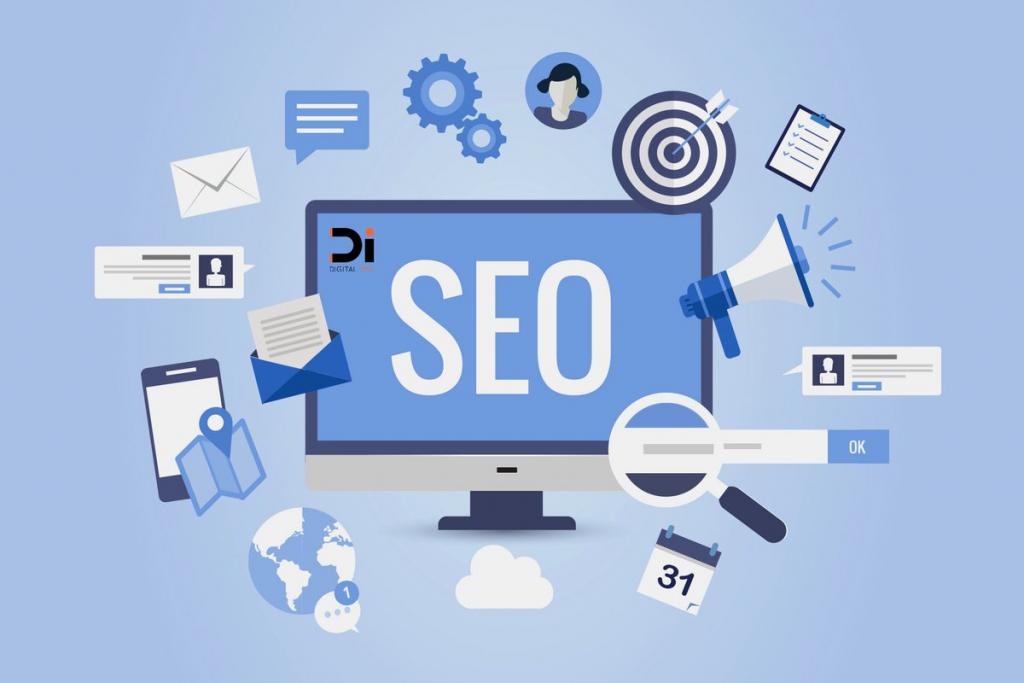
SEO is old, but gold for every online store. Even when you take months to build your beautiful website, but ignore the importance of SEO – your products fail to reach potential customers.
improving SEO in Shopify seems easy at first because titles, meta descriptions, headings, alt text are at hand to manage and adjust. However, it turns out to have many rooms for improvements. Say, you cannot edit or clean up URLs having /products/ or /collections/ or /pages/ and also your sitemap/robot,txt file. As a result, you might need to have at least one of Top SEO-optimization Shopify Apps to optimize SEO elements as wished.
BigCommerce does a much better job related to SEO capabilities. Most noticeably, it is possible to create Google-friendly short URLs. Moreover, the AMP technology is adopted by most BigCommerce templates so you can save a buck on third-party apps. Plus, the robot.txt and sitemap files are editable.
Anyway, given the fact that BigCommerce is better in SEO, bear in mind that they are just recommended SEO techniques. Meanwhile, it is on-page SEO, link building, and keyword research that will help your website pop on Search Engines.
Optimized loading speed
Your online store is made up of a variety of pieces like themes, images, layout, products, collections, and SEO juices, as above. Another important ingredient is the loading speed. Since 2019, Google uses speed as one of the most important factors to rank your store. Even better, online customers always seek a fast and smooth shopping experience.
In terms of loading speed of Shopify vs BigCommerce, we appreciate that Shopify now has a site speed report to indicate how fast your online store is in comparison to the average speed of worldwide ecommerce websites. Thanks to it, you can have plans to speed up your Shopify stores.
BigCommerce’s website is not as impressive as fast as Shopify. However, the overall speed is still acceptable so you do not have to worry about losing potential customers.
Mobile-friendly structure

All themes that you can find in Shopify stores are mobile-responsive, meaning that they will automatically adapt to fit any screen size which they are rendered.
With BigCommerce, the responsiveness to mobile devices is not always consistent, and you might have to request help to change some customization.
Sales channels & Shopify Point of Sale (POS)
Once you get all products ready to buy, you must think about how and where to sell them to get the best profit.
Shopify has a wide range of “sales channels” available, including an online store, Facebook, Messenger, Buy Button, Amazon, Instagram. At the same time, Shopify provides an extremely strong feature called Point of Sale. Accordingly, you can sell online and offline by barcode readers, receipt printers, tills, etc. All inventory and stock availability are automatically synced.
BigCommerce also supports POS, however, you need to install third-party apps. This makes BigCommerce a little behind Shopify for convenience.
Security issues

Both platforms are secure with complete SSL-end stores out of the box.
Moreover, Shopify is certified Level 1 PCI DSS compliant. The company has invested significant time and money to certify PCI and carry out on-site assessments validating compliance to continuous risk management. Thus, you can rest assured about data security.
BigCommerce comes with even more impressive security. The platform is PCI compliant and ISO/IEC 27001 certified, which is the highest standard for securing customer data. All websites powered by BigCommerce utilize Google Cloud and multi-layered security, as well as unparalleled bandwidth and blazing-fast speed.
As a result, you can spend less time monitoring and maintaining your site security and more time increasing conversions.
Shopify vs BigCommerce Shipping & payment
Mentioning shipping options, both platforms provide a wide range of shipping options to choose from. Especially, if you are about to build a dropshipping website, then the Shopify Oberlo app is excellent to connect with several providers and you will be free from shipping options.
In terms of payment options, Shopify is a bit less favorable than BigCommerce. Although it supports more than 80 credit card gateways and a ton of other payment methods, take note that Shopify might charge you some transaction fees varying with your plans (2% for Basic Shopify; 1% for Shopify, and 0.5% for Advanced Shopify).
A look at Shopify payment & best payment gateways for Shopify
Meanwhile, BigCommerce features over 65 pre-integrated gateways designed to support over 100 countries and more than 250 local payment methods. In other words, there are plenty of ways for your customers to buy. More importantly, it takes no transaction fees for payment on all its plans.
Multi-languages and multi-currencies

Unfortunately, Shopify and BigCommerce do support fantastic multi-channel selling capabilities, but with limited options for multilingual options for scalability. As a result, you will need to rely on third-party currencies and language apps on the market.
Now that both platforms are investing more time in multi-language experiences, we hope that those features will be available in nature soon.
Sales & Marketing features
Compare sales & marketing features of Shopify vs BigCommerce, Shopify provides you a bunch of tools related to sales & marketing to help increase your sales, such as Discount codes, gift cards, abandoned cart recovery, POS hardware. Shopify also has an email marketing tool to send emails from its platform. However, at this time, it’s somewhat simple and third-party apps are recommended.
BigCommerce has more built-in sales & marketing features, which is both good and bad. That’s said, many tools make BigCommerce harder to use and you have fewer third-party options to customize your website according to your demands.
Customer Support
When you start selling online for the first time, it is important to get the right support when you need it. Thankfully, Shopify and BigCommerce have similar support options, including Live chat functionality, forum communities, FAQ pages, phone, and email support.
With BigCommerce, you’ll have access to 24/7 guidance over the phone, live chat, and email. And around 90% of issues solved with the first call.
Phone support for Shopify is provided using a callback system, meaning that the support team will call you back when they have a free support slot. Moreover, Shopify helps connect you with the apps’ providers to deliver the most dedicated and proper support.
Which is better Shopify or BigCommerce?
From all information above, we can see that both Shopify vs BigCommerce are good – for different users.
Shopify is easier to use, making it the best all-around ecommerce platform for small shops who do not have experience in building online stores. In addition, Shopify comes with many third-party apps available to use when your business grows over time.
Are you looking for some free eCommerce platforms to start your own business in 2024? Check out recommended list!
Whereas, BigCommerce is more difficult to get to grips with because of their built-in features. It will be preferred by large and fast-growing businesses who expect endless customization opportunities and leverage tech stack at the same time.
Ever wonder Shopify vs building your own website? Let’s dive in!

